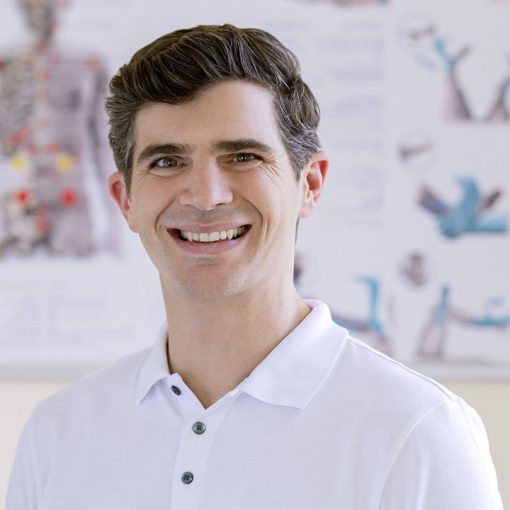Hormonal imbalances can lead to a range of health issues, including PCOS, menopause, and fertility problems. Holistic approaches, such as diet, exercise, and natural remedies, offer a promising way to balance hormones and promote optimal health.

In an episode of her podcast, posted on her brand Goop’s website, actor Gwyneth Paltrow shared her experience with perimenopause and how she has approached balancing her hormones using holistic approaches. To tackle the symptoms, Paltrow adopted a healthy, plant-based diet that is low in sugar and processed foods, and she also started practicing intermittent fasting. Besides, she incorporated natural remedies such as adaptogenic herbs, acupuncture, and cupping into her routine to help manage her hormonal symptoms.
Holistic approaches such as those adopted by Paltrow have been found to be effective in balancing hormones and promoting optimal health in women with conditions such as PCOS, menopause, and fertility problems. Hormonal imbalance occurs when there is an abnormality in the levels of hormones that serve as chemical messengers in many aspects of our health. Nutritionist and corporate wellness Coach, Dr Umesh Wadhavani identifies four factors that contribute to hormonal imbalances: imbalance of food, sedentary lifestyle, stress, and irregular sleep patterns. These, he says, can aggravate conditions such as PCOS, menopause, and fertility issues in women. While hormonal imbalances can be challenging to manage, there are many natural and holistic approaches that can help restore balance.
Understanding PCOS
On my podcast, Austria-based holistic medicine practitioner — Dr Sepp Fegerl, who was associated with the celebrated VIVAMAYR medical health resort explains what PCOS is: “Polycystic ovaries syndrome or polycystic ovaries means there are cysts on the ovaries, visible when you examine the ovaries with an ultrasonic test.” This affects women of reproductive age, bringing about irregular periods, weight gain, and fertility issues. One of the best ways to manage PCOS is through a holistic approach that includes addressing factors that contribute to hormonal imbalances, such as stress, poor diet, and lack of exercise.
Dr Fegerl recommends intermittent fasting (which typically involves eating two meals within an eight hour window), and cautions against compensating for the meals you miss during the six to eight hours of the eating period. He also recommends avoiding juices and “too much fruit”. Dr Wadhavani points out that this method of fasting could have potential benefits mainly because it escalates the process of ‘autophagy’. Autophagy is a cellular process that involves the breaking down and recycling of damaged or dysfunctional cellular components, such as organelles and proteins, in order to maintain cellular homeostasis. The term “autophagy” comes from the Greek words “auto” meaning self and “phagy” meaning eating, reflecting the process of the cell eating itself to maintain its health.
Also listen to: Lose Weight and Feel Amazing by Shakiba Rangoonwala

Simply put, it is a constant process wherein healthy cells destroy the unhealthy or damaged cells, thereby addressing the harm caused by inflammation. Dr Wadhavani states, “When you give your digestive system rest by not eating anything within the 16-18 hour window, autophagy cleaning takes place twice as much.” But he also points out that changes in our lifestyle and diet should be convenient and sustainable. “If engaging in this fast will make you miserable, then it’s not for you,” he says.
Physical activity is another thing Dr Fegerl lays emphasis on. A 2019 study found that women with PCOS who engaged in a 16-week home-based aerobic exercise program saw improvements in insulin sensitivity, which can also improve fertility outcomes. In addition, Dr Fegerl is also among a host of experts who recommend incorporating stress-reducing techniques such as meditation, deep breathing, and yoga into one’s daily routine.
Menopause and hormonal health
Menopause typically occurs between ages 45 and 55 and is defined as the end of menstruation and a stage where there’s a reduction in the production of female hormones, namely oestrogen and progesterone. It may cause discomfort and various symptoms like hot flashes, mood swings, weight gain, brain fog, anxiety, depression, hair loss and vaginal dryness. “It is not an illness, but just a hormonal change where some women suffer from more symptoms than others,” says Dr Fegerl. He adds, “The hormonal change affects your metabolism, of course, your libido, stress resistance, ability to perform and rest.” Many times, the symptoms can push you far out of a state of health and well-being. That’s where Dr Fegerl advises contacting your physician, getting proper examinations done, and testing your hormones.
“It is not an illness, but just a hormonal change where some women suffer from more symptoms than others."
- Dr Sepp Fegerl, holistic medicine practitioner


“It is not an illness, but just a hormonal change where some women suffer from more symptoms than others."
- Dr Sepp Fegerl, holistic medicine practitioner
There are various studies backing different methods to reduce menopausal symptoms. For example, a 2019 study found that acupuncture may ease troublesome symptoms; a 2021 study found that a diet rich in fruits, vegetables, and whole grains is associated with a lower risk of menopausal symptoms, and a 2023 study on phytoestrogens and health effects found that these plant-origin estrogenic substances can also help ease symptoms. Nutritionist and founder of The Basics, Suchita Mukherji, also adds that “Conditions like osteoporosis are more common during menopause, so adding calcium rich foods such as yoghurt, cheese, green leafy vegetables to your diet as well as supplementing with magnesium, iron and even Omega-3 fatty acids” can help combat the condition and other symptoms of menopause like hot flashes and vaginal dryness.
Also listen to: Transforming Menopause through Intelligent Stress Management
All in all, the number one step that Dr Fegerl recommends is: “Don’t panic and don’t punish yourself with physical activity, but be a little bit more physically active”.
Unlocking fertility
Hormonal imbalances can also affect fertility in both men and women. As per a report published by WHO in April 2023, one in six people globally experience infertility, which is approximately 17.5% of the adult population.
“Maintaining a healthy BMI is key to conception.”
- Suchita Mukerji, nutritionist and founder of The Basics


“Maintaining a healthy BMI is key to conception.”
- Suchita Mukerji, nutritionist and founder of The Basics
Dr Fegerl shares that it is important, maybe even more so, for men to take responsibility for increasing fertility. He says: “The way I live dramatically affects the quality of the sperm. We men are on duty and have a responsibility to increase our fertility, and not blame women”. Adding to that, Mukherji says that many men are shocked when they find out male infertility is not that uncommon, with research showing that the male factor is directly responsible for about 20% of infertile couples. She says, “It takes both a healthy sperm and egg to produce a healthy offspring and the responsibility should be divided”.
Women may experience difficulties in conceiving due to stress, inflammation, lack of sleep, and indigestion or maldigestion. A nutrient-dense diet containing fertility-boosting foods, such as leafy greens, berries, and healthy fats, can help boost fertility, with Mukherji encouraging high fibre foods, high protein foods, and home-cooked meals. Along with a balanced diet, she says, “Maintaining a healthy BMI is key to conception”. Several studies point out that lifestyle factors like diet, stress management, and exercise can have a positive effect on fertility, optimising not only your reproductive health but your overall health. Which is why, being physically active and creating a healthy environment for conception is key to improving fertility, in both women and men.
“Don’t look at health in isolation, but look at it as a beautiful machine that we have.”
- Dr Umesh Wadhavani, nutritionist and corporate wellness coach


“Don’t look at health in isolation, but look at it as a beautiful machine that we have.”
- Dr Umesh Wadhavani, nutritionist and corporate wellness coach
Dr Wadhavani advises his clients to visit a gynaecologist every six months, not only to detect issues like PCOS or infertility but also for the prevention of other conditions which may go unnoticed. Mukherji, too, suggests getting a hormone blood test to check out your FSH (Follicle Stimulating Hormone), LH (Luteinizing Hormone), insulin, thyroid levels, etc. Other tests she recommends are a cervical test (pap smear), ovulation test, and an ultrasound, especially of the pelvic organs, ovaries, tubes, and uterus – as also outlined by Dr Fegerl on my podcast. It is time we “Don’t look at health in isolation, but look at it as a beautiful machine that we have,” says Dr Wadhavani.
And there you have it. By adopting holistic approaches to hormonal health as outlined above, you can take control of your well-being and find relief from the symptoms of conditions like PCOS, menopause, and fertility problems.

